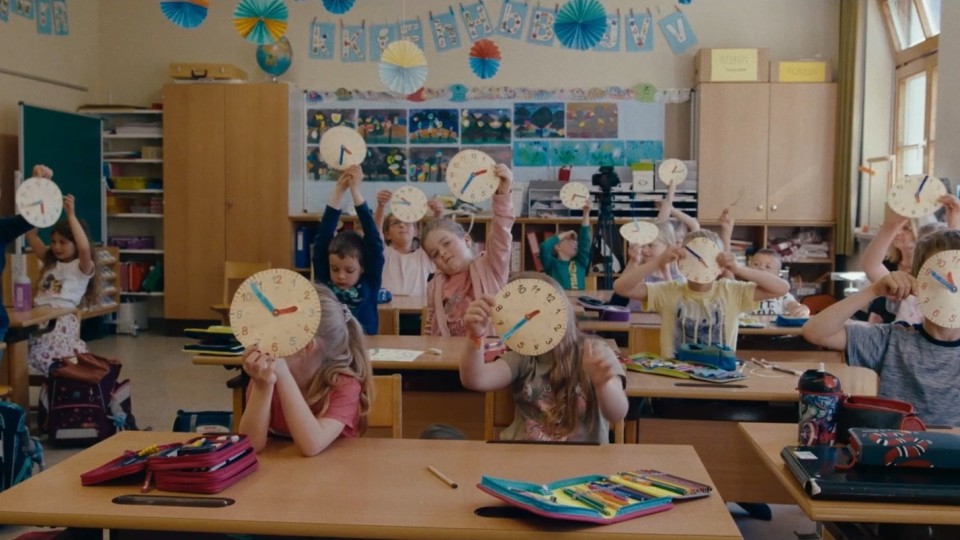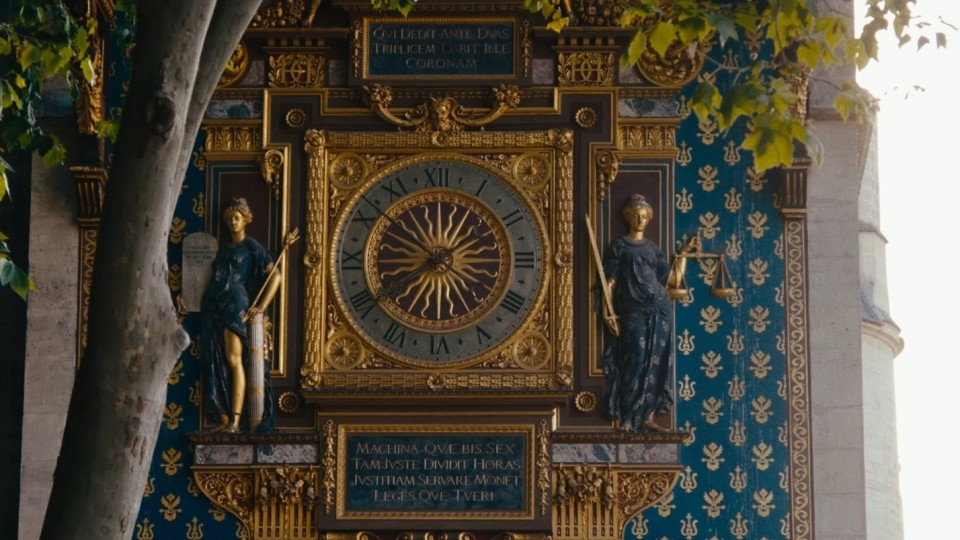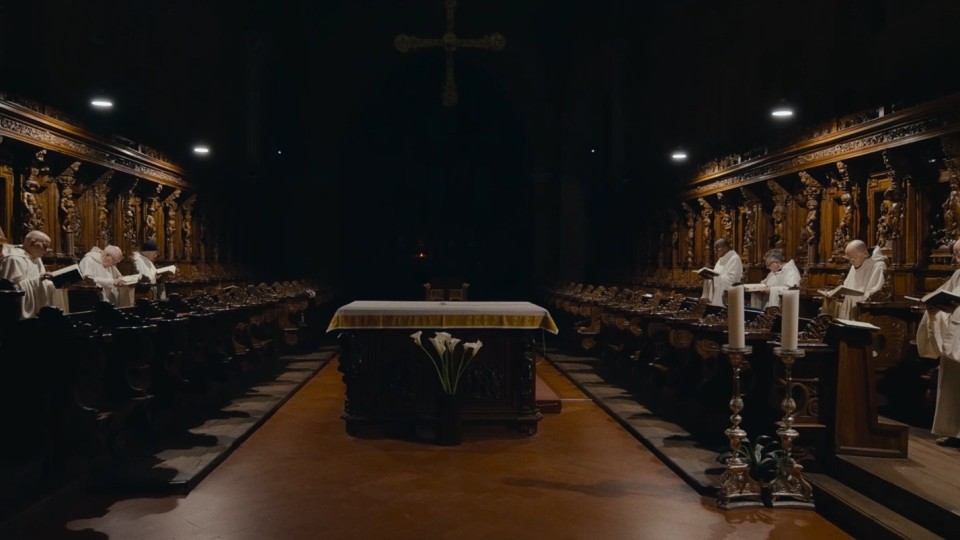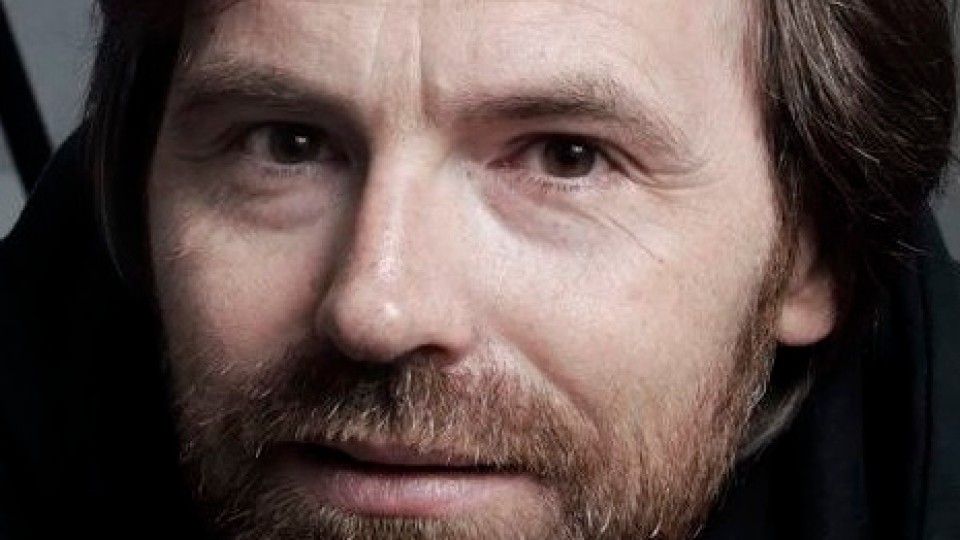Ever since we started measuring time mechanically, we have been given precisely 24 hours each day. However, it feels as though
we are increasingly pressed for time, no matter what the clock says. In his film essay IN SEARCH OF STOLEN TIME, Konrad Wakolbinger asks who our time belongs to, starting from the capitalist world of work and exploring the very nature
of time – which determines all of our lives from morning to night yet remains incomprehensible, even to science.
The title of your film specifies stolen time, in a reference to Proust's lost time. Were you prompted to make this film by
some change in your subjective perception, the sense that you were being robbed of your personal time?
KONRAD WAKOLBINGER: IN SEARCH OF STOLEN TIME emerged from my last film We Are the Mutants, which was devoted to the subject of work. Specifically,
it was about the Austrian Post Office career centre, a euphemism for a place with hundreds of state employees who have no
jobs to do anymore but can’t be fired. It was very disturbing to meet those people, who had to spend their time there but
weren’t allowed to work. Objectively, their presence there itself was paid employment – but subjectively it was an absolute
waste of time. So the question What is work? led me to this film project about time. But there is also a personal connection
based on my own employment history; as well as having experience of typical nine-to-five jobs, I have been positioned outside
classic employment relationships for many years. Working on film projects means alternating between extremely intensive working
hours and phases when you have a lot of spare time. On top of that, I grew up on a farm, where there was no separation between
work and leisure time, which means I am very familiar with three working worlds, each of which has a fundamentally different
approach to time.
Addressing the elusive concept of time on film is no easy task. Did you first approach time on a philosophical level?
KONRAD WAKOLBINGER: I think confronting the topic and searching for the right images went hand in hand, because there was never a point zero where
I said: now I want to make a film about time. As I said, the project developed out of an interest in the subject of work,
and the realization that time is the decisive factor in our working world and our economy. This soon focused my attention
on the mechanical clock, and at some point it became clear that I would also have to address the philosophical aspect and
pose the question: What, in fact, is time?
One initial structural element of the film relates to the measurement of time by mechanical means. You open with a construction
project in Carinthia: a medieval castle is being constructed with the technical means available at that time. A project intended
to run for 40 years. What motivates people to work on project like that – or to launch it in the first place?
KONRAD WAKOLBINGER: This project is under way in Friesach, Carinthia. A stroke of luck for a filmmaker, because it reveals a form of work from
before time was commercialized. I don't know the exact structure of the initiative; there’s the tourist factor, but primarily
it’s a project for the unemployed financed with EU funds. Historical research is one of the aims, but there’s also a desire
to explore a different way of approaching time. The people who are there for a season of training programmes are instructed
by professional craftsmen. Many of them would like to stay longer, because they come to value the teamwork and the absence
of time pressure, even though it’s hard physical work, and they’re exposed to all kind of weather. The key factor for them
seems to be working at their own pace.
The first episodes address the issue of how time was perceived before it was subjected to measurement by mechanical clocks.
What took you to Italy, to the Cistercian monastery of Chiaravalle?
KONRAD WAKOLBINGER: The origins of today's living and working environment can be traced back to the development of the mechanical clock. There
are different opinions about exactly when that took place; some people say it’s impossible to tell where it was invented,
while others believe that we owe this invention to monks in northern Italy. That's one reason why we filmed in the monastery;
the other is that monastic life is very precisely ordered, in accordance with prayer times. In between, there are work, meal
or rest times. The exact division of the day, which seems quite normal to us now, can be traced back to the monastic rules
of St. Benedict.
Measuring time ultimately drove the world of work into an optimization spiral. What major stages do you see in its further
development?
KONRAD WAKOLBINGER: The first developments came about in the High Middle Ages. Clocks became popular very quickly, and soon every self-respecting
town wanted one. At an early stage, merchants began to incorporate time in their calculations, so they could control craft
activities in towns to maximise profits. The mechanical clock facilitated this approach. There was then a linear development
until full-fledged capitalism in the 1880s. The clock was also crucial in scientific and technological advances. And clockwork
was perceived as a model for how the physical universe and society operate. So the Cartesian worldview of a mechanistic world
order envisages everything interlocking smoothly, like the gearwheels of a clock. Whatever can be counted, measured and objectively
represented is ascribed value, while everything else loses importance and, in particular, economic value. In factories during
the mercantile period, hand tools were used, and as a result, man set the pace. When machines came to dominate production
processes during the industrial revolution, they imposed their rhythm on the workers. Digitization is taking this process
to the extreme.
Was it particularly important to you to illustrate the extent to which the exploitation of time extends into our leisure activities?
KONRAD WAKOLBINGER: The media economist Christian Fuchs explains how digital corporations achieve gigantic additional profits by means of wearables
such as sports watches, and while I was doing initial research I found that very interesting. But it was only later that the
attention economy itself came to have a more central role in the film. At first, I wanted more classic industry in the film.
We spent a long time trying to arrange to shoot in a steel mill, but we didn't succeed. It is now the weaving mill that represents
very traditional industry. And I realized that this is no longer so relevant in our era. The data-driven attention economy,
which exploits our time even when we think we’re not working at all, has become far more significant.
Your film makes it clear how subjective the perception of time is, and not only in the experiment shown during the credits.
Despite this – or perhaps precisely because of it – you devote a lot of space to science. Did you want to establish something
objective about time?
KONRAD WAKOLBINGER: Well, naturally this film also presented me with the challenge of understanding time theoretically, and I started to wonder
how objective the whole thing could be. At first, I assumed I’d find someone in the field of physics or philosophy who would
provide a clear definition of time. Ultimately, that doesn’t exist. If you venture deeper into this question, it becomes an
unending search. One interesting aspect of the film arose from an interview with Karlheinz Geißler, who talks about the difference
between beat and rhythm. The time we derive from nature, with day and night, and the seasons, is circular and rhythmic; it
returns again and again – though the repetition isn’t exact. So there is such a thing as natural time. The rhythm set by clocks
has been imposed artificially. Our subjective sense of time is mainly significant because it is at the root of this interesting
tension: we are driven by something that cannot be objectively proven.
IN SEARCH OF STOLEN TIME traces the process by which demands are placed on all the time we have. Did you also look for people
who adopt the opposite approach, who think there’s enough time and time passes slowly?
KONRAD WAKOLBINGER: If that could be said about anybody it would be Anna Jelen; we see her at the end of the film. Her approach is to focus constantly
on the finite nature of our existence, and this inspires her to draw on the time available and consciously shape it. Jean-Remy
von Matt, another interviewee, said he was always grateful when people were late for meetings, because it gave him unplanned
time to think or daydream, and sometimes he would then come up with a good idea.
Was IN SEARCH OF STOLEN TIME a film project that took a lot of time?
KONRAD WAKOLBINGER: Yes. A lot of time. Five years passed from the first day of shooting to completion of post-production work. Before that, there
were years of research and conception. It was definitely a long-term project.
Did confronting time to that extent also have an effect on how you personally handle time?
KONRAD WAKOLBINGER: Unfortunately, I don't know any better than before what time is. I do know, however, that the question of time is very complex,
and not even those people who focus on it intensely can give an exact answer. The realization I found striking is that we
are a society founded on time – yet nobody can say what time really is. Working on the film was a very intense phase of my
life, and having more peace and quiet again is a positive feeling, because it becomes apparent that you need these rest phases
to develop something new. Being timed and having to have ideas at the same time is not the best combination.
If time didn't exist, the world wouldn't exist either, says one of the elementary school children you filmed. Perhaps the most interesting thing is to listen to how children approach
this concept?
KONRAD WAKOLBINGER: The boy who said those words went on to say: "Then we wouldn't know when the supermarket will close." The teacher told us
that in her work, nothing is harder than teaching children about time and the time of the day. Some children find that easy,
others have a hard time with it, and there’s no correlation with intelligence or school performance. Perhaps that’s connected
with the totally abstract nature of time.
Interview: Karin Schiefer
August 2025
Translation: Charles Osborne






